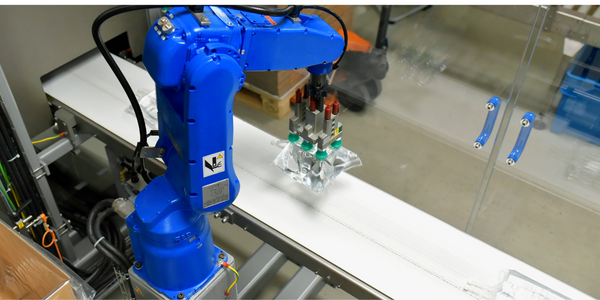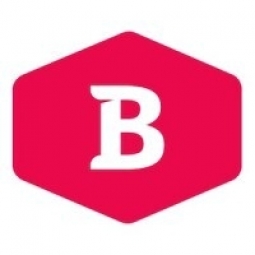Technology Category
- Application Infrastructure & Middleware - Event-Driven Application
- Platform as a Service (PaaS) - Application Development Platforms
Applicable Functions
- Maintenance
- Product Research & Development
Use Cases
- Time Sensitive Networking
Services
- Software Design & Engineering Services
- System Integration
About The Customer
Norton Rose Fulbright (NRF) is a leading international law firm with over 4000 employees worldwide. NRF provides legal and technical services across multiple global industries. In recent years, NRF has focused on integrating technology and innovation into their company to provide top-notch legal services. They have met increasing technical demands, improved their client offer, and become an innovation leader in the industry through fusion team empowered low-code/no-code (LCNC) development.
The Challenge
Norton Rose Fulbright (NRF), a leading international law firm, was facing several challenges due to its traditional development processes. The business departments’ application requests were communicated to the IT department, which then developed them in isolation. This resulted in slow development cycles, high resource consumption, and solutions that did not truly address the problem. NRF was grappling with increasing client requests for technology workflows and portals, excessive reliance on manual communication processes, slow development cycles, lack of innovation, and dispersed request tracking and ticketing tools. A new approach was needed to develop innovative solutions that addressed the exact business problems.
The Solution
NRF adopted a new approach by forming a fusion team for low-code/no-code (LCNC) application development. This team comprised employees from various departments with different expertise, enabling them to collaborate in one development team. The LCNC platform allowed business users without coding experience to participate in the development process, under the governance of the IT department. NRF also adopted agile development processes, building and launching applications rapidly as Minimum Viable Products (MVPs). This approach enabled early detection of issues, necessary adjustments, or problems, thus accelerating iterations. NRF’s latest project was a client-facing application built for a large financial institution. Using the Betty Blocks platform, NRF’s fusion team created a client-facing application that automated the document drafting process, reducing it from 30 hours to 30 minutes.
Operational Impact
Quantitative Benefit

Case Study missing?
Start adding your own!
Register with your work email and create a new case study profile for your business.
Related Case Studies.

Case Study
Centralizing Data for Improved Efficiency: A Case Study on Malvern Panalytical
Malvern Panalytical, a UK-based hi-tech electronics company, was grappling with the challenge of decentralized data storage. The company had a vast amount of unstructured data scattered across various platforms, from hard drives to emails and floppy disks. This made the data searching process extremely cumbersome and inefficient. The company's rapid growth, from 200 to over 1,000 employees in a decade, and expansion across three continents further exacerbated the need for a more structured and centralized data system. As a company involved in electronics manufacturing and software development, it was crucial for Malvern Panalytical to find a platform that could structure all their data, track all modifications of documents in real time, and provide clear visibility of the internal information flow across all its facilities.

Case Study
Managed Hosting Platform
Formula 1® is a sport where every millisecond matters. With changing preferences and the growth of the digital medium, many fans choose to experience the sport through the F1.com website. The website needs to deliver a superior experience to tens of millions of fans across the world consistently. Hence, it is imperative to have a robust platform that can deliver the required performance and scale with growing trac and dynamic fan expectations. Some of the key challenges are: • Every race weekend, Formula1.com attracts up to 7 million fans. Managing this huge surge in website traffic, requires a scalable hosting platform that can simultaneously allow millions of fans to experience the excitement of the sport seamlessly. • Fans across the globe expect an engaging and immersive experience through enriched and enhanced race content across multiple devices. To meet this requirement Formula1.com needs to have a robust platform that is able to deliver real-time updates and information across screens, be it tablets, TVs or smartphones. • A global brand like Formula 1® needs to ensure it delivers a consistent user experience across all platforms across the globe. This consistent delivery of enriched content cannot be compromised through downtime or any other issue at any point. • In an age where threats to global websites are prevalent, Formula 1® needed a platform that was ready to meet any challenge to its website. They needed a solution that delivers consistency, scalability and yet at the same time is continuously monitored, secure and reliable.

Case Study
EDF's Transformation: Enhancing Employee Experience through IT Modernization
EDF, a major UK utilities company, was grappling with a highly customized service management system that was largely manual, with limited potential for automation. This made it difficult to predict or prevent system failures and provide a resilient service. The company's IT system for incident handling was purely manual, leaving no room for modernization. EDF wanted to serve its business and residential customers better by improving the response time to rising energy demands. To achieve this, the company needed to provide its employees with the right tools for improved productivity, better collaboration, and an enhanced IT experience at a reduced cost to serve.

Case Study
Flow Robotics: Scaling Up Production and Accelerating Product Development with IoT
Flow Robotics, a Danish manufacturer, developed flowbot™ ONE pipetting robots to alleviate the strain on bioanalysts in life-science laboratories and hospitals across Europe. These robots were designed to automate part of the testing process, speeding up the time it takes to produce results and reducing pressure on staff. However, the company faced challenges in scaling up production and accelerating product development. High workloads and physically challenging conditions have long been an issue for laboratory professionals. Flow Robotics estimates that around half of medical lab technicians carry out the same arm movements for at least a quarter of their working day. The American Society for Clinical Pathology reported that 85% of laboratory professionals feel burnt out; 36% struggle with inadequate staffing; and 32% face a heavy workload and pressure to complete all testing on time.

Case Study
Citibanamex's Digital Transformation: A Mobile-First Strategy with OpenLegacy
Citibanamex, a part of Citibank corporation, was facing a challenge in keeping up with the rapidly evolving Mexican consumer banking market. The bank's primary goal was to deliver a seamless, personalized user experience across both digital and traditional channels. The bank's mobile application rating was a mere 2.0 out of 5, indicating a need for innovative digital offerings to improve the user experience. The bank's core technology stack was a proprietary mainframe system, which ran core business applications such as payments and account management. Over time, modernization projects led to an increasing spiral of complexity with various tools, mainframe gateways, ESBs, middleware, dispatchers, routers, and messaging queues. Each system had a different way of handling the backend legacy platform, making it harder and more cumbersome to integrate with legacy applications. After years of unsuccessful, costly integration attempts, Citibanamex was left with the same needs and challenges, only exacerbated. The focus shifted to the Customer Digital Experience and the End-User Journey, and they needed a partner that could help them rapidly develop and deploy innovative customer offerings on top of their core systems.








